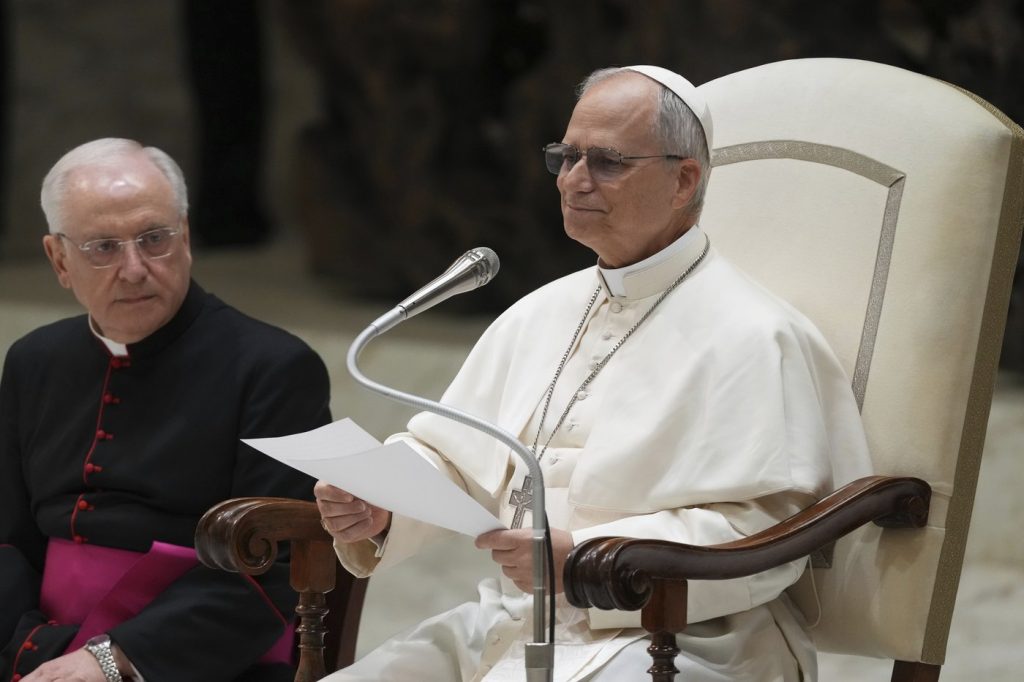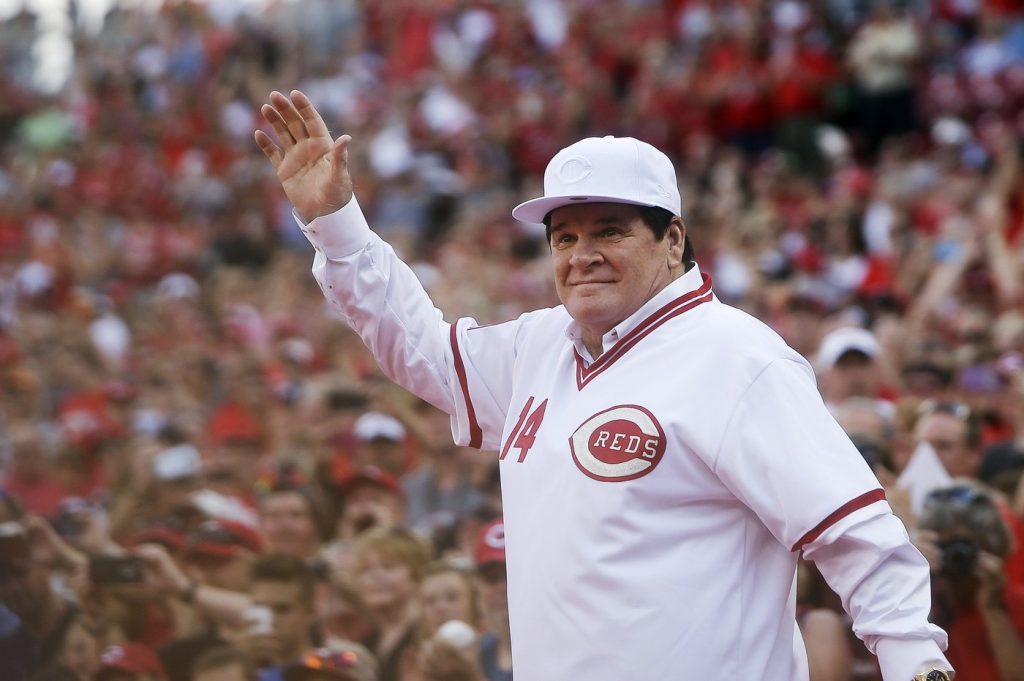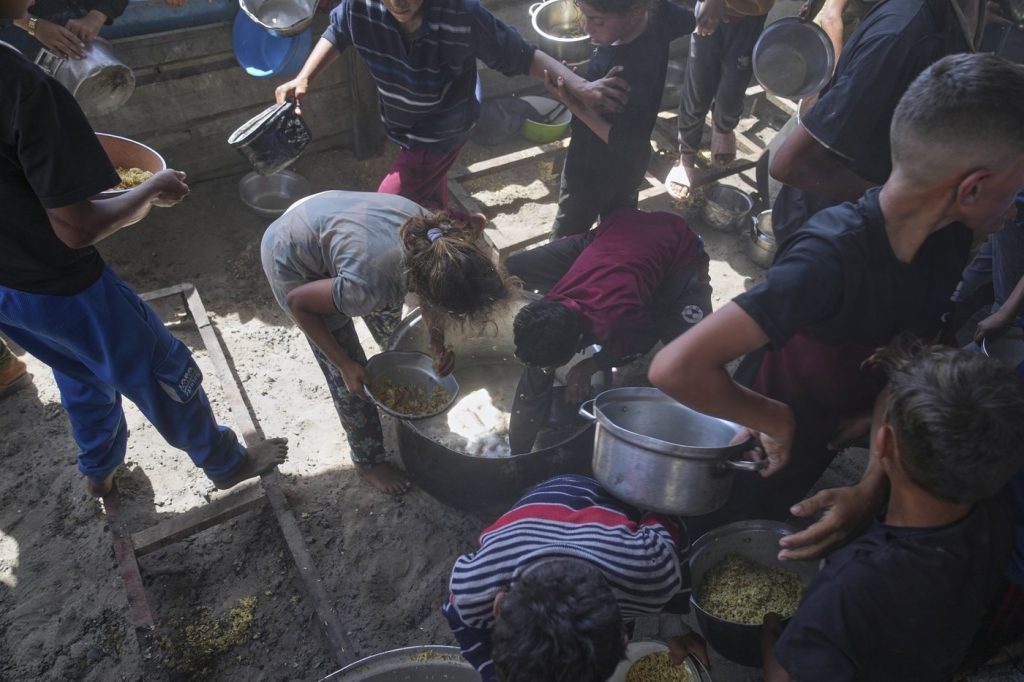VATICAN CITY (AP) — On Monday, Pope Leo XIV made headlines by calling for the release of imprisoned journalists during an audience with around 6,000 journalists who had gathered in Rome to cover his election. This occurred shortly after he became the first American pontiff, leveraging the opportunity to highlight the importance of free speech and the press in a world where many face oppression for seeking the truth.
Pope Leo XIV, who was elected in a swift 24-hour conclave, was welcomed with a standing ovation as he entered the Vatican auditorium for his first public meeting. The 69-year-old Augustinian missionary emphasized the need for journalists to use their words for peace and to give a voice to the voiceless, stating that "the suffering of these imprisoned journalists challenges the conscience of nations and the international community." His passionate plea resonated deeply with the audience, drawing applause as he advocated for safeguarding the "precious gift of free speech and of the press."
In his address, Pope Leo XIV expressed solidarity with journalists worldwide who have faced imprisonment and even risked their lives to report the truth. He recognized their courage in defending dignity, justice, and the right to information. He firmly believed that informed individuals can make free choices, and hence the work of journalists is invaluable in a democratic society.
In an effort to connect with the journalists present, he humorously addressed the audience in English, remarking on the significance of their applause, before switching to Italian to thank them for covering the papal transition. He urged journalists to reject the "war of words and images" and instead promote peace in their communication. "Peace begins with each one of us," he stated, underscoring the importance of how we communicate in fostering a peaceful environment.
Following his brief yet impactful speech, Pope Leo XIV took the time to greet journalists in the front rows, shaking hands and signing autographs as he made his exit down the central aisle. During informal exchanges, it was hinted that he has plans to travel to Turkey to commemorate the 1,700th anniversary of the Council of Nicea, which was a significant event in Catholic-Orthodox relations.
Moreover, the journalists engaged in light-hearted discussions with the pontiff, suggesting various activities, such as playing doubles tennis or organizing a charity match. Pope Leo XIV, a regular tennis player, responded positively to the idea, jokingly adding, "but we can’t invite Sinner," referring to the renowned world No. 1, Jannik Sinner, who was competing at the Italian Open nearby. This interaction showcased a fun, relatable side of the new pope, juxtaposed against his serious advocacy for journalism and peace.
It is notable that during his 12-year pontificate, Pope Francis had also placed great emphasis on the value of journalism and had previously called for the release of imprisoned journalists. Similar to his predecessor, Pope Leo XIV is seen as following a legacy of advocating for communication that serves the common good, highlighting the critical role of journalists in shaping societies.
This audience resembled a previous one in 2013, when Pope Francis discussed his choice of name and the importance of a "church which is poor and for the poor!" Such moments reflect the ongoing tradition of papal engagement with the media and the emphasis on the principles of justice, dignity, and free expression that the Catholic Church seeks to uphold.












